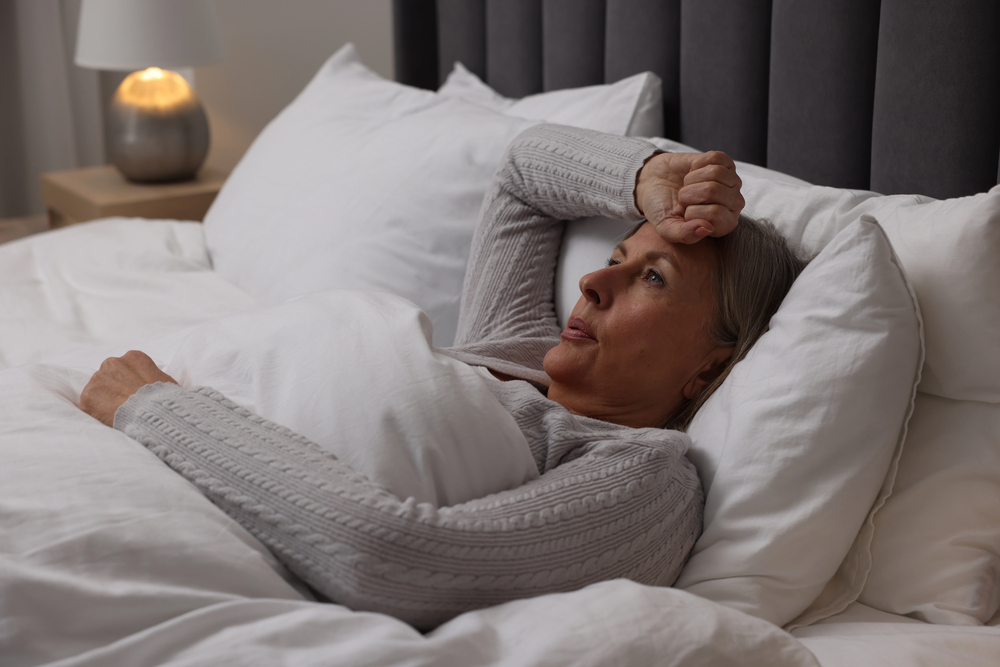Getting a good night’s sleep is essential at any age. However, getting a full night of deep, restorative rest often becomes more challenging as we grow older. Many older adults report difficulty falling asleep, staying asleep, or waking up too early. According to the National Council on Aging, as many as 70 million adults live with persistent sleep problems.
While some changes in sleep patterns are natural with aging, poor sleep is not something you just have to accept. There are effective strategies to improve sleep quality and feel more refreshed each morning.
Understanding Age-Related Sleep Changes
As we age, our body’s internal clock, known as the circadian rhythm, shifts. That can lead to earlier bedtimes and wake-up times. Sleep may also become lighter, making older adults more sensitive to disturbances such as noise or light. Medical conditions, medications, and stress can further disrupt sleep.
However, it’s a myth that older adults need significantly less sleep. Most seniors still require about 7 to 8 hours of sleep per night. The key is improving the quality of that sleep.
Here are a few suggestions for you to explore if you are a senior struggling with sleep problems:
- Maintain a consistent sleep schedule.
Going to bed and waking up at the same time every day—even on weekends—reinforces your body’s natural sleep-wake cycle. Consistency helps train your brain to recognize when it’s time to wind down and when it’s time to wake up.
If you need to adjust your sleep schedule, do so gradually. Try to change your sleep time by no more than 15–30 minutes at a time until you reach your desired routine.
- Create a sleep-friendly environment.
Your bedroom should be cool, quiet, and dark. Use blackout curtains, white noise machines, or earplugs if necessary. Make sure your mattress and pillows provide proper support for your body. A clutter-free, calming bedroom helps signal to your brain that it’s time to rest.
Also, keep screens (TV, phone, tablet) out of the bedroom or at least turn them off an hour before bedtime to reduce exposure to blue light, which can suppress melatonin production.
- Stay physically active during the day.
This one might seem like a tall order when you are sleep deprived and feeling tired. But regular physical activity, such as walking, swimming, or yoga, can help you fall asleep faster and enjoy deeper sleep.
Sleep experts encourage people to aim for at least 30 minutes of moderate exercise most days of the week. However, avoid vigorous workouts within 2–3 hours of bedtime. They may be too stimulating and make it even harder to fall asleep.
- Watch your diet and caffeine intake.
What you eat and drink impacts your sleep. Avoid large meals, spicy foods, and caffeine late in the day. Caffeine can stay in your system for up to 8 hours, so switch to decaf or herbal tea in the afternoon.
While some people think alcohol helps them sleep better at night, experts say that’s just not true. Alcohol may make you feel sleepy at first, but it can interfere with sleep quality later in the night.
- Limit daytime naps.
While short naps (20–30 minutes) can be refreshing, late-day or long naps may make it harder to fall asleep at night. It can be a difficult cycle to break, especially when you are feeling worn out from a lack of sleep. If you need to nap, try to do so before 3 p.m.
- Manage stress and mental health.
Anxiety, depression, and loneliness can negatively impact sleep. That’s where mindfulness practices such as meditation, deep breathing, or gentle stretching before bed can help relax your mind. Talking to a counselor or joining a support group of peers who share similar struggles may also be beneficial if stress or difficult emotions are affecting your rest.
- Consider starting a sleep diary.
Keeping a sleep journal can help you identify patterns or habits that might be affecting your sleep. Record your bedtime, wake time, naps, what you ate, physical activity, and how you felt the next day. Share this information with your health care provider if you’re having ongoing issues.
- See your doctor.
If despite your best efforts, you still can’t get a good night’s rest, schedule an appointment with your doctor. Many common medications, including those for high blood pressure, allergies, and depression, can interfere with sleep. Another health condition, such as restless leg syndrome or sleep apnea, could be keeping you up. Your doctor might even want to refer you to a sleep specialist for further testing.
Follow the Heritage Blog for More Updates
If you are an older adult or the family caregiver for one, we encourage you to bookmark our blog and visit often. Each week, we share new articles on topics ranging from beating the winter blues to using technology to virtually visit faraway family members.

